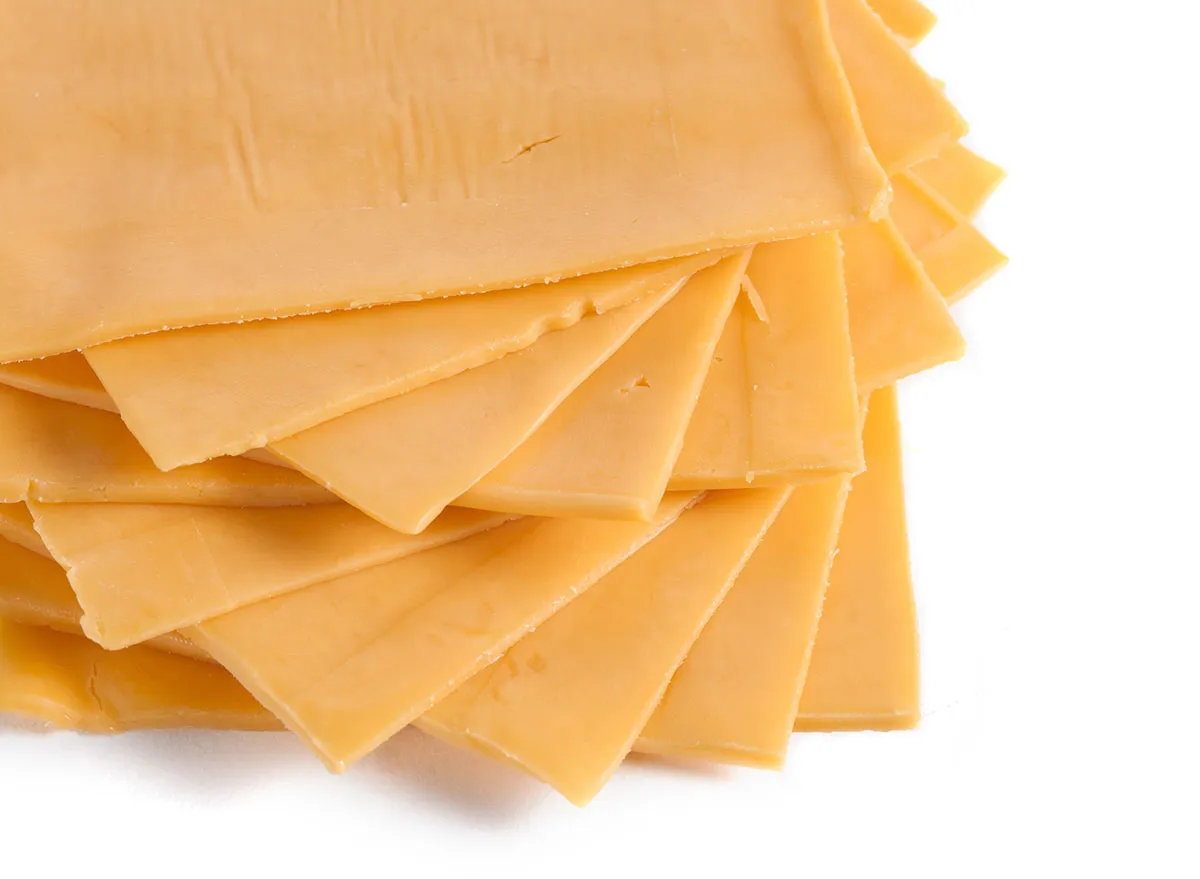One Major Side Effect of Eating American Cheese, Say Experts

When you need to top off a burger or make the perfect grilled cheese, nothing does the trick like a slice or two of American cheese. This iconic sandwich essential has graced cookouts, family meals, and quick snacks for decades, but has attracted its fair share of flack due to some less than wholesome ingredients.
“American ‘cheese’ isn’t really cheese,” says Jay Cowin, ASYSTEM’s registered nutritionist and director of formulations. “It contains less than 51% of cheese curds making it a ‘cheese product.’ The rest is made up of preservatives, whey, and other additives giving it an absurdly long shelf life.”
The added amount of sodium means that the product guarantees to raise blood pressure, making it a particularly dangerous dairy product to overindulge in. (Related: 100 Unhealthiest Foods on the Planet)
“The stuff that makes up this cheese product has been proven to be harmful to your health,” Cowin continued. “Aside from one slice being around 60 calories they also contain a high amount of sodium. All of this can lead to high blood pressure, hypertension, and heart disease. The risk is thinking you’re eating something that’s going to benefit you but in reality, you’re causing more harm to your body. Steer clear of processed foods. If it’s too good to be true, it probably is.”
Diana Gariglio-Clelland, Next Luxury’s RD, concurred that the greatest risk we encounter when we eat American cheese comes in the form of increased blood pressure via the food’s sodium count.
“[American cheese is] made from real cheese, but is processed to give it a creamy texture and a lower melting point,” says Gariglio-Clelland. “Processed foods are the leading sources of excess sodium in the typical American diet, and American cheese is no exception. One ounce of American cheese contains 468 milligrams of sodium or around 19% of the daily value. In comparison, one ounce of cheddar cheese contains 174 milligrams of sodium, which is only 7% of the daily value.”
“It’s recommended to not consume more than 2,300 milligrams of sodium per day, yet the average American consumes more than 3,400 milligrams per day,” says Gariglio-Clelland. “Excess sodium in the diet can worsen common health conditions like high blood pressure, kidney disease, and heart disease. When excess sodium is consumed, the water holds on to more fluid, which puts more of a strain on the heart and kidneys through increasing blood pressure.”
When in doubt, opt to include cheese with no fillers next time you want to whip up the perfect cheeseburger or grilled cheese—your body will definitely thank you. Or next time you make a cheeseburger, why not try this One Ingredient Everyone’s Adding to Their Burgers instead!








